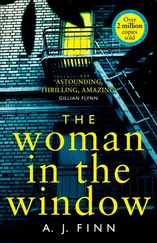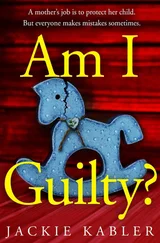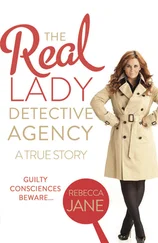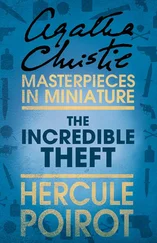The houseman looks to Constance, who neither supports nor denies my claims. ‘It’s all right,’ he puts a hand on my shoulder, ‘we’ll find him.’ He steers me over the hill and then I see the house emerge from the fog – it must be clearing now, daylight beginning to break through – far closer than I had expected.
‘Go back indoors,’ he says, ‘and wait for us there.’
We obey. My fingers and toes are numb with cold, or fear. Mrs Yarrow meets us and gives us mugs of warmed milk, but I can’t drink mine while I’m thinking of Edmund out in the wild, frozen and alone. I feel disgraced by my idiotic confidence, stalking out into the savage mist as if it posed no threat whatsoever. I feel dismayed by my failure to speak to the captain in person about our endeavour, and the vanity that had coaxed me into it, enjoying the captain’s trust in me and wanting to see that trust rewarded. ‘Mrs Yarrow,’ I splutter, once Constance is safely by the fire and out of earshot. ‘Were you out there just now? Were you out in the fog?’
‘Certainly not, miss!’
‘I saw a woman. She was standing on the cliff.’
‘Are you sure?’
‘Perfectly. She was… Oh, she was horrible!’
‘The fog plays tricks on us, miss,’ says the cook. ‘There’d be nobody foolish enough to go walking alone on a morning like this.’
‘I swear I saw her. Constance did, too, but she won’t admit it.’
Mrs Yarrow washes out the milk pan. ‘Constance saw her?’
‘Yes. I might not have noticed this fiend were it not for her.’
The cook puts the pan on the draining board to dry. ‘This was after Edmund ran away from you?’
‘Yes!’
‘Children like to play games.’
‘What are you suggesting?’
‘Especially with a new prospect such as yourself, miss.’
‘Please be frank, Mrs Yarrow.’
The cook appears undecided as to whether to speak further. She peers past me to check the hallway is clear, before: ‘Ever since I can recall,’ she says, ‘those twins have had a mischief to them. Goodness knows I struggled to cope with them on my own, before you arrived. Always playing pranks on me, they were. Hiding my belongings. Tricking me into believing I’d said words I hadn’t. Knocking on my door late at night and then running away, so that I became convinced of some ghoul! Once, the boy even put a nasty big spider in my bed, and when I pulled back the covers I screamed the house down – and I knew it was him, I knew!’
‘I cannot accept it, Mrs Yarrow. The children are impeccable.’
‘So impeccable as to tease you into disobeying their father?’
‘I beg your pardon?’
‘Knowing the captain as I do, miss, there is slim chance he would have given blessing to your expedition. I’ll wager it was one of the children, was it not?’
I swallow. Edmund is a boy, full of the boldness of youth. What child hasn’t told a white lie in defiance of a parent? That I will pay the price of that lie is unfortunate. I struggle to answer Mrs Yarrow, but my silence is answer enough.
The cook sits. ‘All I’m suggesting, miss, is that being without their mother might have…addled their natures somewhat. Is it possible that your woman on the cliff was in fact the boy himself? That the twins persuaded you into the outing as a way to pursue their game? These children know Winterbourne and its surrounds better than anyone. It’s their home. They’ve no fear of tumbling into the sea or tripping on a stray log – they know every inch. It’s their playground.’
We’re interrupted by the sound of a closing door.
‘Edmund!’ I jump up.
The boy is huddled next to Tom, the houseman’s coat wrapped around his small shoulders. He is pale and cold, his teeth chattering, and his copper hair is plastered to his forehead with precipitation or clammy fright.
‘Found him in the copse,’ says Tom, ‘and a good job, too.’
Mrs Yarrow steers him into the kitchen. ‘Let’s get you warmed up, lovey.’
‘Edmund, darling,’ I step forward, ‘are you all right?’
As the boy’s meek form travels past me, I feel the urge to apologise – though for what, I do not know. He was the one who ran from me. I cannot bear to think of the accusations that passed the cook’s lips just moments before. Seeing Edmund’s frail body, shivering and innocent, I cannot entertain it for a heartbeat. I think of him shaking and alone on the moors and want to scoop him into my arms.
But it seems I am required elsewhere. Captain de Grey appears in the hall.
‘Miss Miller, I must see you immediately.’
Amid the brutal shadow of his face, his blue eyes glint like diamonds. They frighten and excite me, both at once.
I turn to Edmund but the boy is being led away. For an instant, he glances behind him and sharply meets my eye.
*
‘Just what in hell do you think you were doing?’
‘I’m sorry, Captain. It was foolish to leave Winterbourne. Accept my apology.’
‘Did you not deem it necessary to ask me first?’
‘I’m very sorry,’ I say, for I cannot think of anything else. Edmund is a child, and I could always have overridden his claim.
The captain pours himself a drink – brandy, strong, in a cut-glass tumbler – and knocks it back. ‘Do you want one?’ He pours another.
‘No, thank you.’ He drinks more. He wipes the back of his hand across his mouth and I notice the coarse black hairs on the outside of his wrist.
‘Sit down,’ he tells me. I do.
‘Do you have any idea,’ he says, ‘what those children mean to me?’
‘Yes, Captain.’
‘Do you have children?’
‘I do not.’
‘Then you lie.’ He sits at his desk. It is scattered with paper, an ashtray bearing the stubs of several cigars, and a framed photograph whose picture I cannot see from this angle. ‘You cannot possibly grasp what it might be to lose a child,’ he says. ‘I could have lost Edmund today. Do you hear me? Do you understand?’
I swallow dryly. I have no idea what it is to lose…
Oh, but I do, Jonathan , I want to say. Oh, but I do. And I think that if I were Laura de Grey, with this husband and these children, I would have wanted to live for ever and a day. I would have risked losing nothing. I would have held them all to my heart so tightly that none of them could get away.
‘I accept full responsibility for what happened,’ I manage. Any protest that Edmund orchestrated his own fate would sound petty on my part. If the price is the captain’s anger then so be it. ‘It was reckless to leave Winterbourne.’
I wonder where the captain was this morning, when I came knocking. Possibly he was sleeping, or possibly he’d been drinking. But for a tired man, for a drunk, his eyes are piercingly clear. The burned side of his face is in shadow (does he always sit so as to ensure this?) and his dark hair is unkempt. He trails a long finger around the rim of his brandy glass, watching me.
Конец ознакомительного фрагмента.
Текст предоставлен ООО «ЛитРес».
Прочитайте эту книгу целиком, купив полную легальную версию на ЛитРес.
Безопасно оплатить книгу можно банковской картой Visa, MasterCard, Maestro, со счета мобильного телефона, с платежного терминала, в салоне МТС или Связной, через PayPal, WebMoney, Яндекс.Деньги, QIWI Кошелек, бонусными картами или другим удобным Вам способом.
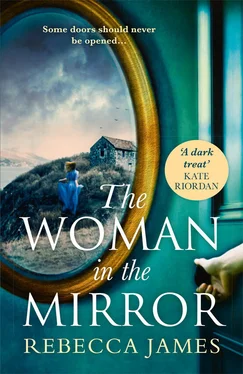
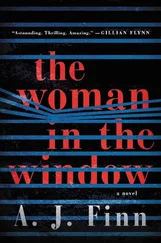


![Джеймс Чейз - The Mirror in Room 22 [short story]](/books/421068/dzhejms-chejz-the-mirror-in-room-22-short-story-thumb.webp)


